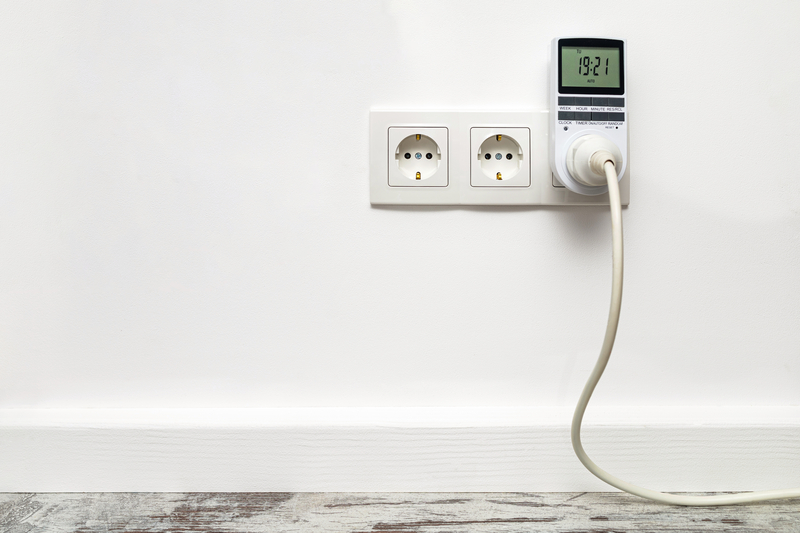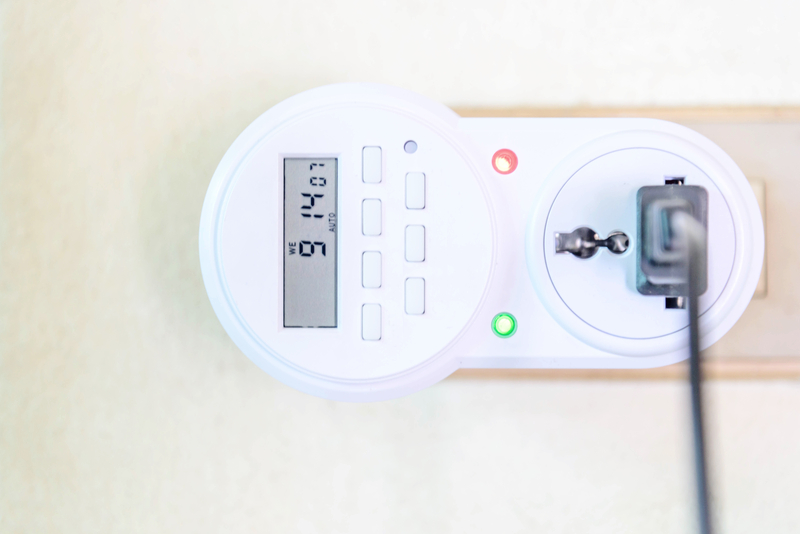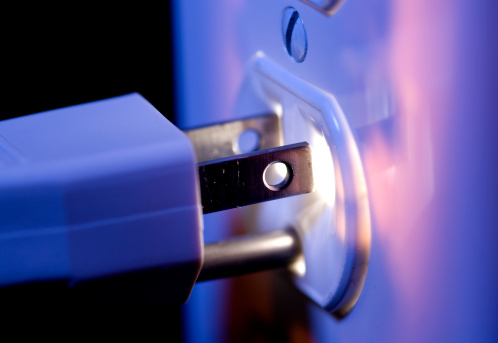This article is your guide to understanding outlet timers and how they work. This simple yet effective device can significantly enhance energy efficiency in your home with minimal effort. But what exactly is an outlet timer, and how can it contribute to energy conservation? Let’s dive into the world of outlet timers, exploring their functionality, benefits, and how they can be a game-changer for energy-conscious homeowners.
Here at The Energy Professor, we want to give you the information you need to not only save money on your energy bill but to also become more energy efficient. We hope find this post helpful and it makes it easier for you to know more about outlet timers. Be sure to check out our one-of-a-kind energy savings calculator!
The Energy Professor Electricity Rate Check Tool
What is an Outlet Timer?

An outlet timer, sometimes referred to as a timer electric socket or electric plug timer, is a device that controls the power supply to any appliance or gadget plugged into it. It allows homeowners to schedule when a device is turned on and off, offering not only convenience but also a smart way to manage energy consumption.
How Does an Outlet Timer Work?
An outlet timer functions by cutting off the power supply to an appliance plugged into it based on how you program it. These devices come in various forms, from mechanical to digital models, but they all do the same thing. Users can set specific times for the gadget to activate or deactivate, automating the power flow to the plugged-in device. This is especially useful for appliances that do not need to run continuously, providing an effortless way to manage their operation.
Related post: Do Plugged in Appliances Use Electricity When Off?
How to Use an Outlet Timer

Using an outlet timer is surprisingly straightforward. For a plug-in with a timer, you simply insert it into your wall socket and then plug your appliance into the timer. Setting up involves programming the timer according to your schedule – this could mean setting it to turn a lamp on at dusk, or ensuring a fan turns off at dawn.
Instructions will vary slightly between models, but the essential steps revolve around specifying on and off times that align with your daily routine.
How is an Outlet Timer Energy Efficient?
An outlet timer enhances energy efficiency by enabling precise control over when an appliance or device is powered on and off. This direct management prevents unnecessary power consumption by ensuring devices operate only during needed times. For instance, rather than leaving a lamp or a fan running all day, an outlet timer can turn it off automatically during hours of non-use. This reduces the overall electricity usage, leading to significant energy savings.
Moreover, by curtailing what’s known as “vampire power” — the energy consumed by devices even when they’re not actively in use but still plugged in — outlet timers cut down on stealthy energy drains that can inflate your energy bills without you even realizing it. This is particularly impactful for appliances that have standby modes consuming power around the clock.
In essence, an outlet timer’s ability to schedule the operational times of household devices translates to only using electricity when absolutely necessary. This not only conserves energy but also contributes to lowering your monthly utility expenses and reducing your carbon footprint. The cumulative effect of using timers across various appliances in a home can result in substantial energy savings and a more environmentally friendly household
Do Outlet Timers Use a Lot of Electricity?
A common question is whether the outlet timer itself consumes a lot of energy. The answer is reassuringly no. Outlet timers are designed to be highly energy-efficient. The electricity used by the timer to function is minimal, far outweighed by the energy savings achieved by controlling appliance usage more effectively.
Related post: How To Save Energy When Working From Home
Outlet Timer FAQ
Q: Do Outlet Timers Save Electricity?
A: Absolutely. By controlling the operational hours of your appliances, outlet timers prevent unnecessary energy consumption, directly contributing to electricity savings.
Q: What is an Energy Timer?
A: An energy timer is another term for an outlet timer, highlighting its role in managing and reducing energy consumption by controlling the power supply to appliances based on a set schedule.
Q: How do Light Timers Conserve Energy?
A: Outlet timers for lights work by ensuring lights are only on when needed, avoiding wastage of electricity through forgetfulness or when natural light suffices, thereby conserving energy.
Q: What Can I Use Outlet Timers For?
A: The applications are vast and varied. From managing the operation of holiday lights, and ensuring your coffee maker turns on right before you wake up, to controlling the charging times of your devices, outlet timers offer a versatile solution for automating and optimizing energy use across numerous devices.
Do you Need Cheaper Electricity?
If you’ve taken the time to understand the information on your bill and discovered you’re paying more than you’d like for your electricity, have you looked around for a cheaper deal? The Energy Professor has a wealth of information on ways to save on your utilities, including details of top deals that could significantly reduce your monthly or quarterly electricity bills.
We hope you found this article helpful! If you are looking for ways to increase energy efficiency and sustainability in your home be sure to take a look at all of the latest renewable energy options in your area. The Energy Professor helps residential and small business owners find qualified energy suppliers in New York, New Jersey, Pennsylvania, Texas, Ohio, Maryland, Illinois, and Massachusetts.


